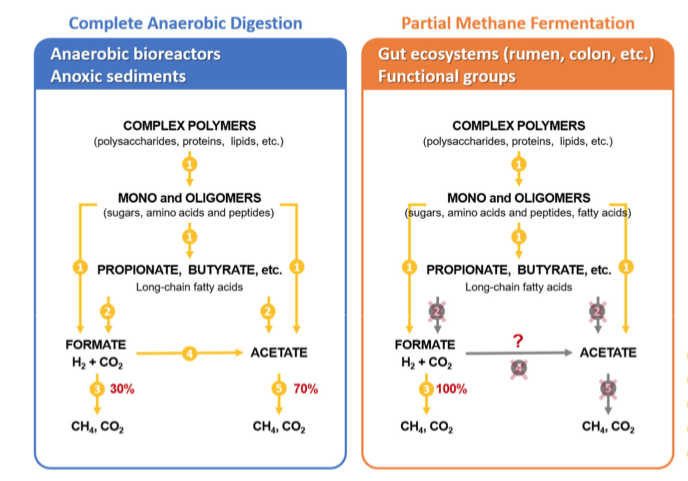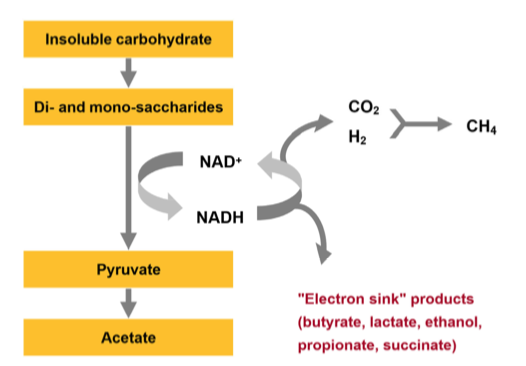There seems little evidence that it does, for if it did it would hardly enhance the growth of the livestock. It’s the methanogenic bacteria that enable ruminant digestion in the first place!
Biochemistry
The biochemistry of methane production in ruminant digestion is well described in a freely accessible review by Mackie et al. (2024). Although there are many different bacteria involved and a variety of pathways and intermediates, the important point is that methane production results from two separate processes, conducted by different bacteria. The first is the anaerobic fermentation of organic foodstuffs, which produces hydrogen gas. The second is the reaction of the hydrogen gas with carbon dioxide to form methane. This is summarized in this figure from the review:
 The biochemical rationale for this is that the second step (methanogenesis) reoxidizes that NADH produced in fermentation to NAD+, allowing the first step to continue. The hydrogen is a necessary reducing agent in processes by which the methanogenic bacteria generate energy as ATP, methane being an unneeded byproduct.
The biochemical rationale for this is that the second step (methanogenesis) reoxidizes that NADH produced in fermentation to NAD+, allowing the first step to continue. The hydrogen is a necessary reducing agent in processes by which the methanogenic bacteria generate energy as ATP, methane being an unneeded byproduct.



